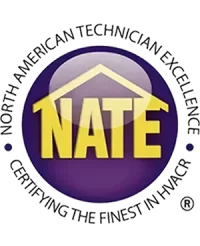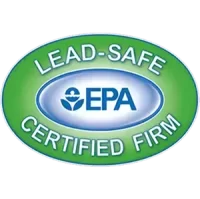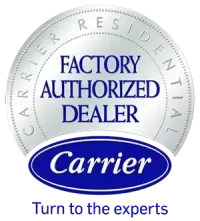Understanding Water Heater Replacement Needs in Northlake Homes
Water heater replacement represents one of the most critical home maintenance decisions you’ll face as a Northlake homeowner. The average water heater operates reliably for eight to twelve years, though factors like water quality, usage patterns, and maintenance frequency significantly impact this timeline. When your morning shower suddenly turns cold or you notice rust-colored water flowing from your taps, these warning signs indicate your water heater may be approaching the end of its service life. At Energy Services Air Conditioning and Heating Company, we encounter numerous households throughout the Chicago area experiencing decreased hot water capacity, unusual noises emanating from their units, or visible corrosion around tank connections.
The decision to replace rather than repair becomes particularly important when considering the cumulative costs of repeated service calls versus investing in modern, efficient equipment. Contemporary water heating technology has advanced significantly, offering homeowners improved energy efficiency ratings that can reduce monthly utility expenses by twenty to thirty percent. Our experience serving residential customers throughout Chicago and surrounding communities has shown that delaying necessary replacement often leads to emergency situations, including potential water damage from tank failures that can affect flooring, drywall, and personal belongings stored nearby.
Selecting the Right Water Heater for Your Northlake Property
Choosing between traditional tank-style and tankless water heaters requires careful consideration of your household’s specific hot water demands and available installation space. Traditional storage tank water heaters, ranging from forty to eighty gallons capacity, maintain a constant reserve of heated water, making them ideal for families with simultaneous hot water needs across multiple bathrooms and appliances. These units typically cost between eight hundred and two thousand dollars before installation, depending on capacity and efficiency ratings. Energy Services Air Conditioning and Heating Company evaluates factors including your home’s square footage, number of occupants, and peak usage times to recommend appropriately sized equipment.
Tankless water heaters, alternatively, heat water on demand through high-powered burners or electric elements, eliminating standby energy losses associated with maintaining stored hot water. These compact units mount on walls, freeing valuable floor space in utility rooms or basements common in Northlake homes. While initial investment ranges from two to four thousand dollars, tankless systems often provide twenty-year service life compared to traditional tanks’ ten to fifteen years. The endless hot water supply proves particularly beneficial for larger households or homes with luxury bathrooms featuring multi-head showers or soaking tubs.
Professional Installation Process and Technical Requirements
Proper water heater installation involves numerous technical considerations beyond simply connecting water lines and power sources. Local building codes in Northlake mandate specific requirements for temperature and pressure relief valve discharge piping, combustion air provisions for gas-fired units, and electrical circuit specifications for electric models. Our installation process begins with thorough evaluation of existing plumbing infrastructure, including supply line sizing, shut-off valve condition, and drainage provisions for maintenance and emergency situations. We assess whether current gas lines provide adequate capacity for newer, high-efficiency models that may require increased fuel flow rates during operation.
Venting requirements for gas water heaters demand particular attention, especially when upgrading to condensing models that produce cooler exhaust gases requiring specialized vent materials. Standard atmospheric-vented water heaters utilize natural draft through metal vent pipes, while power-vented models incorporate electric blowers to expel combustion gases, allowing flexible venting configurations through sidewalls rather than roof penetrations. This flexibility proves valuable in finished basements or interior utility rooms where traditional vertical venting presents challenges.
Energy Efficiency Considerations and Cost Savings
Modern water heaters incorporate advanced features that significantly reduce energy consumption compared to units manufactured even five years ago. Heat pump water heaters, though less common in our Northlake service area, achieve efficiency ratings exceeding three hundred percent by extracting ambient heat from surrounding air rather than generating heat directly. These units work particularly well in unconditioned spaces like basements where they provide supplementary dehumidification benefits during humid summer months. Standard electric resistance water heaters achieve ninety-five percent efficiency, while natural gas models range from sixty to ninety-five percent depending on whether they feature condensing technology.
Maintenance Requirements and Longevity Factors
Maximizing your new water heater’s lifespan requires understanding and implementing proper maintenance procedures. Annual flushing removes sediment accumulation that reduces heating efficiency and accelerates tank corrosion. We recommend checking anode rods every three years, as these sacrificial components protect tank interiors from corrosive elements present in municipal water supplies. Temperature settings between 120 and 125 degrees Fahrenheit balance comfort with safety while preventing accelerated mineral precipitation that occurs at higher temperatures.
Common Installation Challenges in Northlake Homes
Older Northlake properties often present unique challenges during water heater replacement projects. Basement installations may require addressing inadequate floor drainage, necessitating installation of drain pans and overflow piping to protect against potential leaks. Homes built before 1980 frequently lack dedicated water heater platforms, requiring concrete pad installation to achieve proper elevation above potential flood levels. We regularly encounter undersized gas lines in vintage homes, originally equipped with lower-capacity appliances, requiring upgrades to accommodate modern high-efficiency units.
- Electrical system evaluation: verifying adequate circuit capacity for electric models or power-vented gas units
- Water line assessment: checking for galvanized pipes requiring replacement due to corrosion or flow restrictions
- Expansion tank installation: required when check valves or pressure reducing valves create closed-loop systems
- Seismic strapping requirements: securing units against movement per current building codes
- Accessibility compliance: ensuring service clearances meet manufacturer specifications for warranty validity
Throughout Northlake and neighboring communities, we encounter varying water quality conditions affecting equipment longevity and performance. Hard water, containing elevated calcium and magnesium levels, accelerates scale formation inside tanks and on heating elements. Installing water softening systems or scale-inhibiting devices extends equipment life while maintaining optimal efficiency. Regular professional inspection identifies developing issues before they necessitate emergency replacement, helping homeowners budget for eventual replacement while avoiding unexpected failures during inconvenient times.







